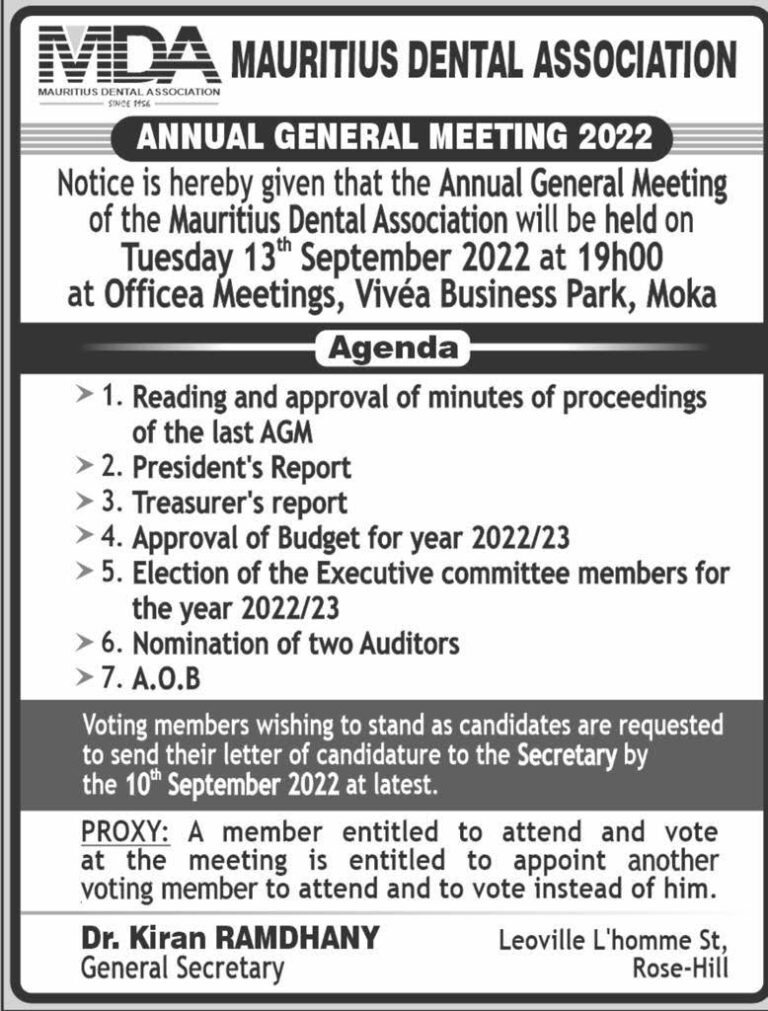Directory
Browse the directory and obtain all necessary information to make an appointment with a dentist of your choice.
Join Us
Listing in online dentist directory of MDA. Customzied profile page. Receive MDA newsletter.
Find a Dentist
Find an MDA Registered Dentist Near You
Directory
Browse the directory and obtain all necessary information to make an appointment with a dentist of your choice.
Join Us
Listing in online dentist directory of MDA. Customzied profile page. Receive MDA newsletter.
Find a Dentist
Find an MDA Registered Dentist Near You
WHO WE ARE

WHY JOIN US?
Members of the MDA enjoy the following benefits:
- Listing in online dentist directory of MDA
- Customzied profile page
- Receive MDA newsletter
- Register online for events.
- Receive Ros Magazine from Sop de Paris
- Recieve invitation on upcoming conferences
- Take part in the colgate school plan and any other events oraganized by the association
WHY JOIN US?
Members of the MDA enjoy the following benefits:
- Listing in online dentist directory of MDA
- Customzied profile page
- Receive MDA newsletter
- Register online for events.
- Receive Ros Magazine from Sop de Paris
- Recieve invitation on upcoming conferences
- Take part in the colgate school plan and any other events oraganized by the association
SOURCES
Implants and Prosthodontics Symposium- Mauritius 2020
scientific programme in french
Dental Events
Frequently Asked Question
Faq
How regularly you go for dental tests depend on your oral health needs. The aim is to catch small problems early. For many people, this means a dental exam every six months. Your dentist may suggest that you visit more or less often depending on how well you care for your teeth and gums, problems you have that need to be checked or treated, how fast scale builds up on your teeth, and so on. Ask yourself the following questions: Do I clean every day? Do I brush twice a day with a fluoride toothpaste and follow my dentist’s advices on how to brush properly? Do I eat a balanced diet, including food from all food groups, and limit sweets and sticky foods? Do I smoke? Do I have a history of cavities or gum disease? Is my overall health good? The answers to these questions are all issues that affect your oral health. They will help you and your dentist choose how often you need to visit for dental exams. It’s worth noting that you should not determine your need for dental care on what your dental plan covers.
How often you need to have x-rays also depends on your oral health. A healthy adult who has not had cavities or other problems for a couple of years probably won’t need x-rays at every appointment. If your dental situation is less stable and your dentist is monitoring your progress, you may require more frequent x-rays. If you are not sure why a particular x-ray is being taken, ask your dentist. Remember that dental x-rays deliver very little radiation; they are a vital tool for your dentist to ensure that small problems don’t develop into bigger ones.
It’s essential to get an early start on dental care, so that your child will learn that visiting the dentist is a regular part of health care. The first step is to choose a dentist for your child. It may be your own dentist or one who specializes in treating children (called a pediatric dentist). Once you have selected a dentist, call the office to find out at what age he or she prefers to see child patients for the first time. MDA inspires the assessment of infants, by a dentist, within 6 months of the eruption of the first tooth or by one year of age. It’s important to make the first visit a positive experience for your child – one reason why it’s best to visit before a problem develops. If you think there is a problem, however, take your child to the dentist right away, no matter what age. If you are a nervous dental patient, ask your partner or another family member to take the child for the appointment. If your child senses that you are nervous, he or she may feel nervous too. When you talk to your child about going to the dentist, explain what will happen without adding things like “it won’t hurt” or “don’t be scared.” Be sure to get an early start on regular dental care at home. Start cleaning your child’s mouth with a soft damp cloth before teeth come in and continue with a soft toothbrush once he or she has a first tooth. Limit the number of sugary treats you give your child, and focus on healthy food choices from the very beginning.

Frequently Asked Question
Faq
How regularly you go for dental tests depend on your oral health needs. The aim is to catch small problems early. For many people, this means a dental exam every six months. Your dentist may suggest that you visit more or less often depending on how well you care for your teeth and gums, problems you have that need to be checked or treated, how fast scale builds up on your teeth, and so on. Ask yourself the following questions: Do I clean every day? Do I brush twice a day with a fluoride toothpaste and follow my dentist’s advices on how to brush properly? Do I eat a balanced diet, including food from all food groups, and limit sweets and sticky foods? Do I smoke? Do I have a history of cavities or gum disease? Is my overall health good? The answers to these questions are all issues that affect your oral health. They will help you and your dentist choose how often you need to visit for dental exams. It’s worth noting that you should not determine your need for dental care on what your dental plan covers.
How often you need to have x-rays also depends on your oral health. A healthy adult who has not had cavities or other problems for a couple of years probably won’t need x-rays at every appointment. If your dental situation is less stable and your dentist is monitoring your progress, you may require more frequent x-rays. If you are not sure why a particular x-ray is being taken, ask your dentist. Remember that dental x-rays deliver very little radiation; they are a vital tool for your dentist to ensure that small problems don’t develop into bigger ones.
It’s essential to get an early start on dental care, so that your child will learn that visiting the dentist is a regular part of health care. The first step is to choose a dentist for your child. It may be your own dentist or one who specializes in treating children (called a pediatric dentist). Once you have selected a dentist, call the office to find out at what age he or she prefers to see child patients for the first time. MDA inspires the assessment of infants, by a dentist, within 6 months of the eruption of the first tooth or by one year of age. It’s important to make the first visit a positive experience for your child – one reason why it’s best to visit before a problem develops. If you think there is a problem, however, take your child to the dentist right away, no matter what age. If you are a nervous dental patient, ask your partner or another family member to take the child for the appointment. If your child senses that you are nervous, he or she may feel nervous too. When you talk to your child about going to the dentist, explain what will happen without adding things like “it won’t hurt” or “don’t be scared.” Be sure to get an early start on regular dental care at home. Start cleaning your child’s mouth with a soft damp cloth before teeth come in and continue with a soft toothbrush once he or she has a first tooth. Limit the number of sugary treats you give your child, and focus on healthy food choices from the very beginning.
BLOG
ADVERTISING SECTION
This section can be used for partners wishing to advertise or for important notifications












